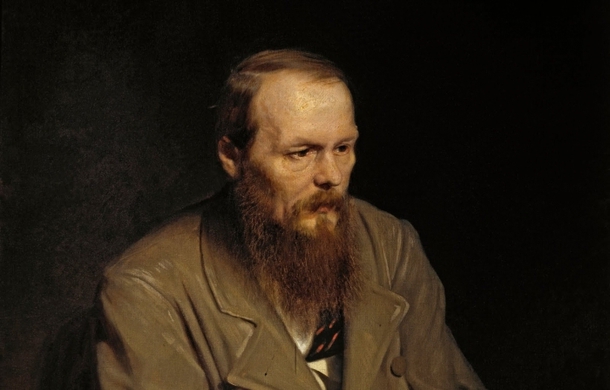The novelist Fyodor Dostoevsky (1821-1881) was known as a voice for the poor and downtrodden in Russian society, and an advocate of social justice. Yet at the same time, he was a strong opponent of socialism and its presuppositions. As such, and given that the idea of socialism is a feature of the 2016 presidential race, I thought I would post a summary of Dostoevsky’s thoughts on socialism as intriguingly described in the Dostoevsky Encyclopedia:
“The Rousseauistic view of human nature on which utopian socialism rested was severely challenged by Dostoevsky’s experience of prison in Siberia. The theoretical notion of the fundamental goodness of human beings was now tested against the reality of human nature in the raw. The unrepentant brawlers, thieves, and murderers with whom he spent four years were not merely innocent victims who would happily live in brotherhood and harmony once freed from repressive institutions. Returning from ten years in Siberia Dostoevsky encountered a socialism that had taken on a much more revolutionary cast. His remarks about it in both fiction and journalism over the next two decades are almost uniformly hostile. The enmity—largely theoretical—between Christianity and the socialism of the late [Vissarion] Belinsky and his circle, had now become a reality, and this revolutionary and atheistic doctrine the major rival of Christianity for the hearts and minds of the new generation. Dostoevsky’s critique of socialism, then, begins with its atheism. Dismissing the essential spiritual nature of human beings, the socialists can concern themselves only with man’s material needs. As Dostoevsky wrote in his notebook for 1863-1864: ‘The socialists want to regenerate humans, to liberate them, to present them without God and the family. They conclude that having forcibly changed the economic way humans live they will achieve their goals. But humans are transformed not from external reasons but only from moral changes.’ In his notes for an unfinished article, ‘Socialism and Christianity,’ Dostoevsky wrote that ‘the socialists go no further than the belly.’ Lacking any spiritual basis for human brotherhood, the socialists must resort to compulsion to establish it. French socialism, he wrote in 1877, ‘is nothing other than the compulsory union of humanity’; or, as he said, more vividly, about the slogan of Roman Catholicism, which he saw as sharing the goals of socialism, ‘Fraternité ou la mort’ (‘Be my brother, or off with your head’). These two ideas—that human problems can be solved by exclusively material remedies, but that this cannot be done without compulsion—run through Dostoevsky’s critique of socialism.”
Do you think that any of Dostoevsky’s critiques are applicable to today’s manifestations of socialism?
















1 Comment
Matthew
February 1, 2024, 7:03 amThank you, Daniel Lattier, for your article. Please would you do me the kindness of telling me where I could read Dostoevsky's notes on his unfinished article on 'Socialism and Christianity' (in English)?
Yours sincerely,
REPLYMatthew Lilley.